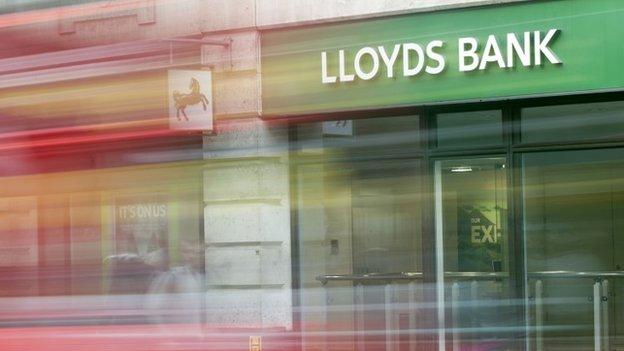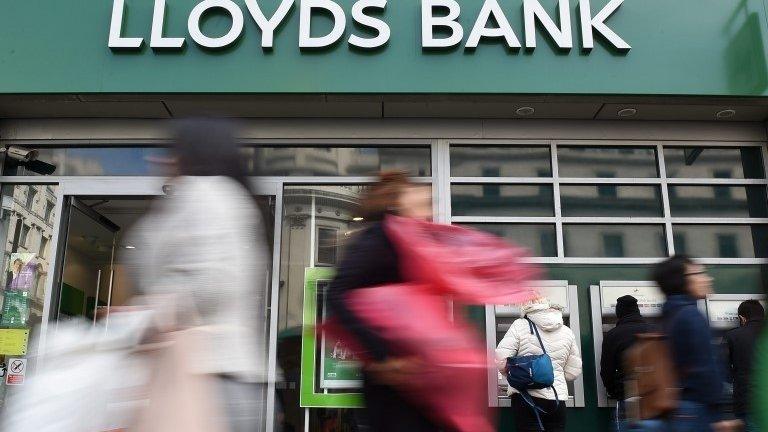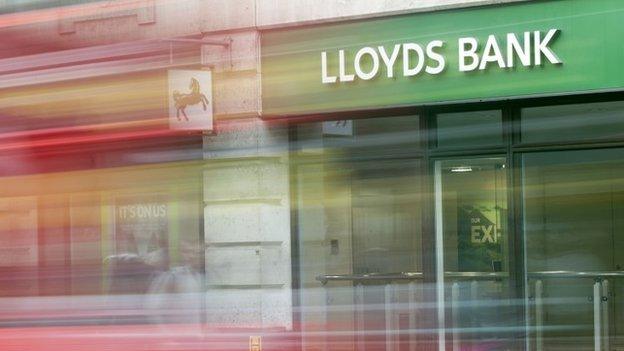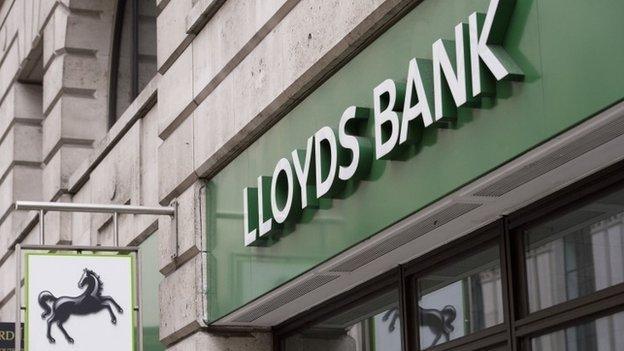Lloyds Bank payment protection claims bill tops £13bn
- Published

Lloyds Banking Group received £22.5bn of taxpayers' money during the financial crisis
Lloyds Banking Group has set aside a further £1.4bn to compensate customers who were mis-sold payment protection insurance (PPI) as it reported a 38% rise in half year pre-tax profits.
It means the bank has now set aside more than £13bn in compensation.
Last month, Lloyds was fined a record £117m , externalby the Financial Conduct Authority (FCA) over the mis-sold PPI.
The bank said profits for the six months to the end of June, external were £1.19bn, compared with £863m a year earlier.
The PPI charge had been widely expected. The three months to the end of June mark the last quarter in which the bank can make set aside PPI compensation against its corporation tax bill.
Lloyds called the additional provision for PPI "disappointing". It said the extra provision reflected "higher than expected reactive complaints with higher associated redress".
The bank said it had identified about 1.2 million previously defended PPI complaints for re-review at the end of 2014.
That had now increased to 1.4 million cases, the banks said.
Those cases were being reviewed after the FCA fined the bank as a result of an investigation into the way that some 2.3 million complaints were handled.
The FCA found the bank mis-handled complaints between March 2012 and May 2013
The bank also recorded a previously reported loss of £660m on the sale of TSB to Banco Sabadell, which it said was now complete.
Lloyds' chief executive Antonio Horta-Osorio said: "Today's results demonstrate the strong progress we have made in the first half of the year.
"We remain focused on our aim to become the best bank for customer sand shareholders, while at the same time supporting the UK economy."
The government has reduced its stake in the bank from 43% at the height of the financial crisis to 15%. The government has been steadily reducing its stake in the bank over the past year with share sales to institutional investors.
It is expected that the government may announce a discounted share sale to the public - similar to many of the privatisations that took place in the 1980s - in the early half of next year, when its stake is set to be as low at 5%.
- Published5 June 2015

- Published23 June 2015

- Published1 June 2015
